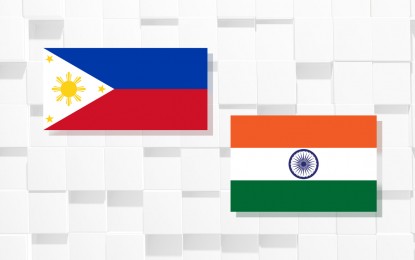
MANILA – The Philippine and Indian governments have agreed to begin the negotiations on a bilateral preferential trade agreement (PTA), which will reduce and eliminate tariffs on various goods.
The announcement was made during the 5th India-Philippines Joint Commission on Bilateral Cooperation (JCBC) led by Foreign Affairs Secretary Enrique Manalo and his counterpart Indian Minister of External Affairs (EAM) Jaishankar in New Delhi on June 29.
“SFA and EAM expressed satisfaction at the growing pace of bilateral trade, which had for the first time crossed the level of USD3 billion in 2022-23, and agreed to commence negotiations on a bilateral Preferential Trade Agreement,” the joint statement read.
The Department of Foreign Affairs, however, has yet to provide details as to the specific date the two governments will hold the first round of negotiations.
Manalo and Jaishankar also acknowledged the growing engagement between businesses on both sides, including through nearly thirty business-to-business meetings held over the past three years in different sectors.
Both then agreed to encourage Filipino and Indian companies to sustain their engagement, and explore new investment opportunities.
The two top diplomats likewise emphasized the need for expanded connectivity and ease of travel to boost not only trade and investment but also tourism and people-to-people exchanges.
The Indian minister, for his part, welcomed Manila’s move to introduce e-visa for Indian nationals and noted that India had already extended the e-visa facility to the Philippines.
In a separate tweet, Manalo described his meeting with Jaishankar as a platform to realize the full potential of the Philippines and India’s “transformative partnership” in the 21st century.
On top of trade, development cooperation between the two states were also discussed, with Jaishankar underlining India’s commitment to share digital innovations on disaster resilience, health, water, environment protection and education, among others. (PNA)
